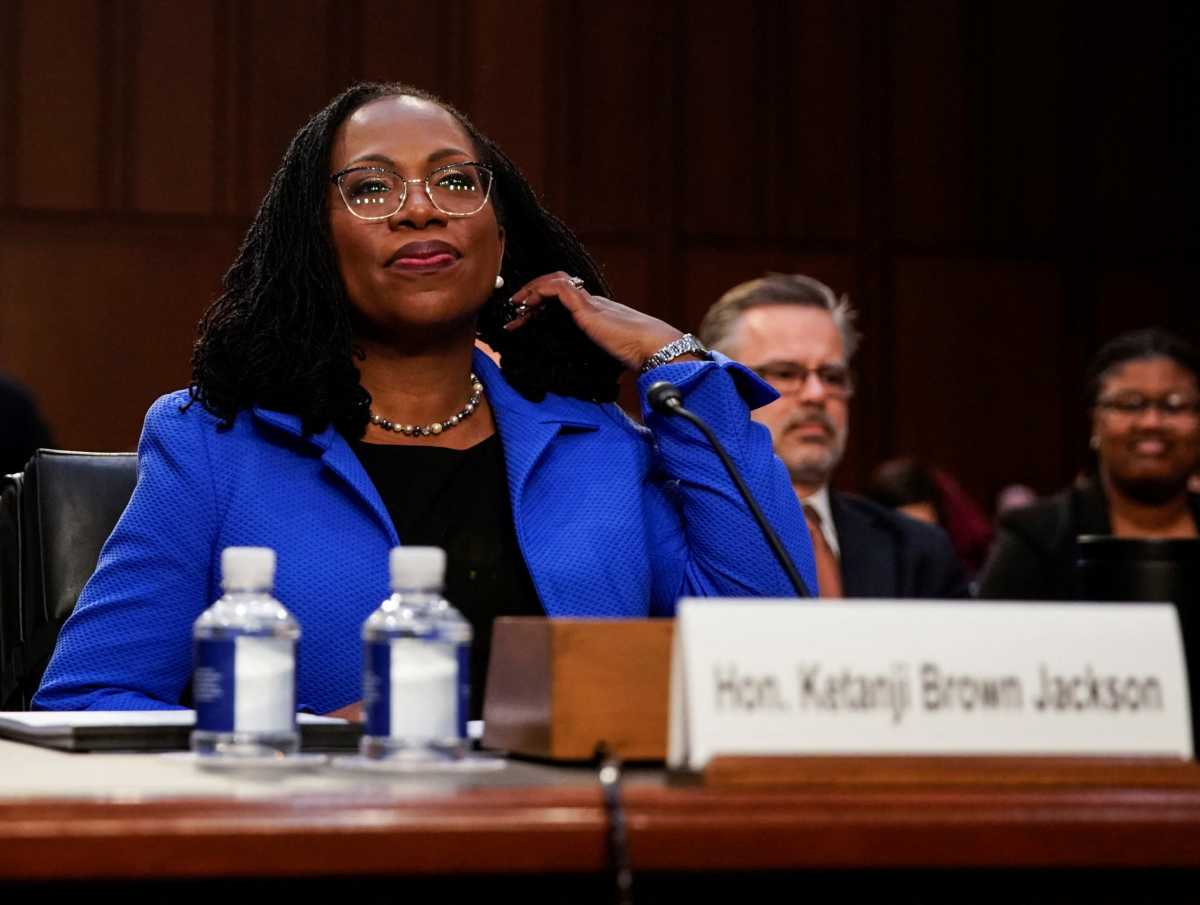By Moira Warburton, Lawrence Hurley and Andrew Chung
Senate Democrats on Wednesday defended Ketanji Brown Jackson, President Joe Biden’s nominee to become the first Black woman on the U.S. Supreme Court, as Republicans resumed attacks on her judicial record and sought to paint her as a liberal activist.
Jackson faced more questioning by Senate Judiciary Committee members on the third day of her confirmation hearing after a marathon session on Tuesday during which Republicans pursued a series of hostile questions. Jackson has rejected Republican accusations that she was improperly lenient as a judge in sentencing child pornography offenders and criticism of her legal representation earlier in her career of some detainees at the U.S. naval base at Guantanamo Bay, Cuba.
Republican senators also have tried to link Jackson to activist groups on the left and to “critical race theory,” which argues American history and institutions are infused with racial bias.
Republican Senator Lindsey Graham on Wednesday joined those who have sought to paint Jackson’s sentencing in child pornography cases as too lenient, frequently interrupting her while she attempted to answer his questions.
“All I can say is your view of how to deter child pornography is not my view. I think you’re doing it wrong. And every judge who does what you’re doing is making it easier for these children to be exploited,” Graham said.
“I know how serious these crimes are,” Jackson said, adding that her approach was to ensure “the most serious offenders get the longest time.”
Democratic Senator Dick Durbin, the committee’s chairman, said Jackson’s approach to child pornography sentencing was similar to the vast majority of federal judges.

Graham also accused Jackson of being an activist judge, citing one case as “exhibit A of activism.”
So far, there is no sign that the Republican attacks are likely to derail Jackson’s confirmation, with Democrats narrowly controlling the Senate. With a simple majority needed for confirmation and the Senate divided 50-50 between the parties, she would get the job if Democrats remain united regardless of how the Republicans vote.
Jackson has served since last year as a federal appellate judge after eight years as a federal district court judge. Her confirmation would not change the court’s ideological balance but would let Biden freshen its liberal bloc with a 51-year-old jurist young enough to serve for decades. The Democratic president nominated Jackson last month to the lifetime post to succeed retiring liberal Justice Stephen Breyer.
There are signs that not all Republican senators agree with the targeting of Jackson’s record on sentencing. Republican Senator Thom Tillis said during the hearing that he was “sympathetic to some of it, not necessarily all of it” when describing claims made his colleagues. Republican Senator Mitt Romney told the Washington Post the attacks on Jackson were “off course.”
Other Republican senators said it was appropriate to question her on her sentencing record.
“I’d certainly be pleased to vote for the first Black woman to go on the court, but what happens in the hearings will be and should be the most important element of that,” said Republican Senator Roy Blunt, adding that he would be looking for Jackson’s desire to “be a judge, not a legislator.”
Durbin praised Jackson for her poise under pressure during the hearing and said some Republicans had used it as “an opportunity to showcase talking points for the November election” when control of Congress is up for grabs, including the argument that Democrats are “soft on crime.”
“Well, you have made a mess of their stereotype,” Durbin said, pointing to the fact that she has been endorsed by law enforcement groups, including the National Fraternal Order of Police.
Senator Chuck Grassley, the committee’s top Republican, complained about documents that senators have sought relating to Jackson’s sentencing record and her time on the U.S. Sentencing Commission, a federal agency that recommends sentencing guidelines.
“How is the United States Senate supposed to review a record that we don’t have?” Grassley asked.
Tillis during his questioning of Jackson joined other Republicans in denouncing proposals from the left to expand the size of the Supreme Court to neutralize its current 6-3 conservative majority, and pushed Jackson to oppose the idea.
As she also did on Tuesday, Jackson declined to give her opinion but said she understood the arguments on both sides. Justice Amy Coney Barrett, President Donald Trump’s third Supreme Court appointee, also sidestepped the issue at her 2020 confirmation hearing.
Jackson’s questioning by senators is due to end on Wednesday. Outside experts are scheduled to testify on Thursday’s final day of the hearing.
If confirmed, Jackson would be the 116th justice to serve on the high court, the sixth woman and the third Black person. With Jackson on the bench, the court for the first time would have four women and two Black justices.
Reuters

































